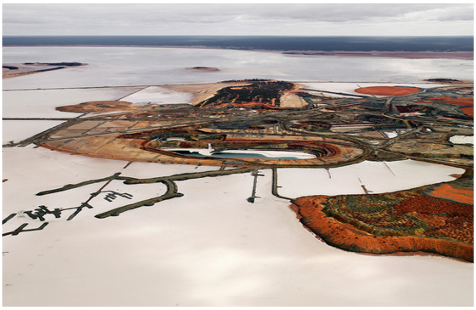Data Centres and Energy Consumption
Data centres are the unseen giants of our digital lives, consuming an estimated 1-2% of global electricity each year.
As our digital footprint grows, so does the environmental impact of maintaining the infrastructure that powers our online activities.
The Geographical Spread
Data centers are strategically located around the world, often in regions with cooler climates to reduce cooling costs.
Satellite view reveals the physical footprint of these digital infrastructure hubs.
The Rise of AI and its Environmental Footprint
The boom in AI-driven technologies is rapidly increasing the demand for computational power, with growing environmental consequences.
Training a single large AI model can generate as much CO2 as five cars over their entire lifetimes.
Tech Campus Expansion
Major tech companies continue to expand their physical footprint, building increasingly larger campuses.
The energy requirements for these campuses far exceed traditional office buildings due to their computing infrastructure.
Renewable Initiatives in Tech Hubs
Major tech companies are investing in renewable energy projects, but challenges remain in achieving true sustainability across operations.
Google claims that its data centers are carbon neutral, but this often relies on carbon offsets rather than actual emissions reductions.
Urban Integration
Tech facilities are becoming increasingly integrated into urban landscapes, with implications for city infrastructure and energy grids.
Dublin's tech corridor represents a model of how digital infrastructure shapes modern cities.
Mining Location
Mining Location
Mining Location
Mining Location
Gold Mining and Environmental Impact
Located in Western Australia, the St Ives Gold Mine is a major site of mineral extraction. The mining operations contribute significantly to the local economy but also bring substantial environmental challenges.
Mining activities, including land clearing and resource extraction, leave a lasting imprint on the landscape, highlighting the physical costs of supplying materials for digital infrastructure and other industries.

Future of Sustainable Technology
Emerging technologies, from green AI to low-carbon cloud storage, point towards a more sustainable digital future.
Innovations in cooling systems and server efficiency are helping to reduce the environmental impact of our digital infrastructure.
Tropical Challenges
Singapore's tropical climate presents unique cooling challenges for data centers, requiring innovative solutions.
Data centers in Singapore are exploring seawater cooling and other sustainable technologies to reduce their carbon footprint.